Sustainable New Industry
EBD businesses and the ecoinnovation edge.
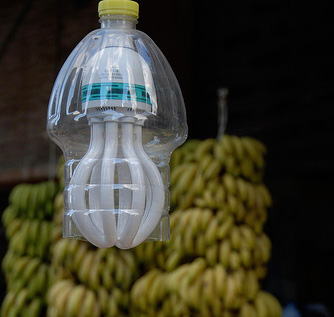
The path from the incubator to self-sufficient business is getting shorter. Twelve new potential businesses are currently located in the incubator premises, many of which have been set up by recent graduates with great entrepreneurial ideas. The small shop and exhibition-gallery set up attached to the incubator now reflect the creative interests of many of these 12 start-ups, but still connect to those who have moved on to full commercial life. Since the facility was established in 2016 over ten new businesses have grown up and ‘moved out’.
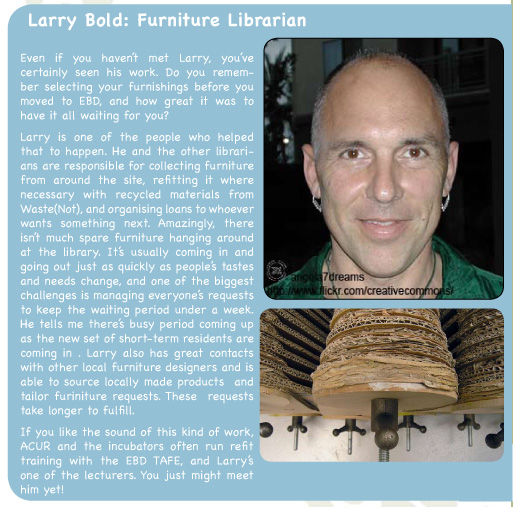
Not all of those have survived, and not all are still located in the EBD district, but five of our more successful service and product companies started their life in the secure entrepreneurial environment of the incubator. Many businesses at EBD derive their existence from research and innovation projects of ACUR, residents’ experimentation and community arts events.
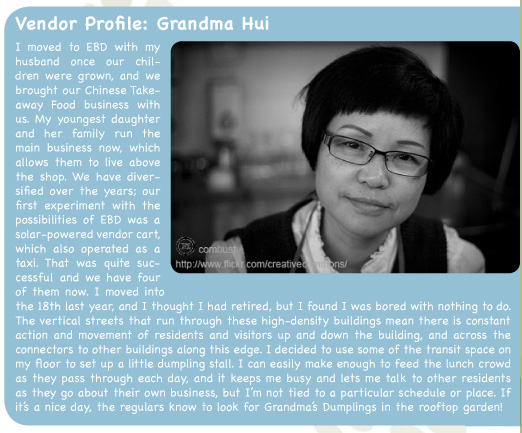
Over the years many people have questioned the informal name for the development which has ‘stuck’: the Environmental Business District (EBD). This name was orginally only a project title used by design-development teams to emphasise the proximity of the site to the CBD and to sell the idea to government. When it transpired that the district would be predominantly residential, the ‘Business’ reference in EBD was often questioned. Yet, over time, it has been the real success of sustainable, slow consumption, low carbon businesses which has been at the centre of public attention on the district. These businesses first focused on the design and construction challenges of the site. In some cases the smaller, innovative service and product companies settled into a home within the new residential precincts because it was a great address or because of logical connections to the daily life and evolution of EBD. All businesses within the district have a discernable eco-innovative edge. It is clear that residents refer to their location as ‘The EBD’ with a real sense of pride.
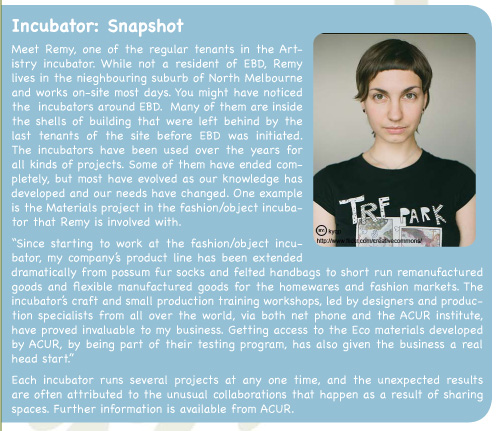
The state government’s policy gamble in 2009 was that this site would prove to be worth its initial investment as a stimulant for eco-innovation and a generator of critically needed knowledge for the climate-challenged future. In just a decade and half, the economic contribution of businesses created through and from this project, in areas such as fresh food and food preservation, energy, water, information systems, building, products, design, hydrology, sharing services and entertainment, has been truly astounding. The community protected the name EBD in 2022 because of its growing representation of quality, innovation and sustainable solutions.
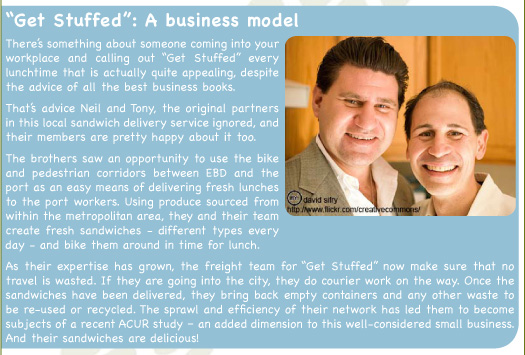
Possibly the most widely known feature of ‘difference’ for all EBD businesses has been their ‘comunity service obligation’; a requirement and a responsibility that comes with an EBD business address. This – like so many aspects of EBD life – started as a voluntary movement amongst some of the early businesses. Although the form of service obligations varied considerably, the idea was quickly seen as not just good for the community but also good for business, so good in fact that it was easy to write this into conditions for commercial operations on the site. It has been most interesting to see how this idea has been accepted – not just for the small to medium sized local businesses but within the special branches of large corporations that have been established on the site in the last few years.